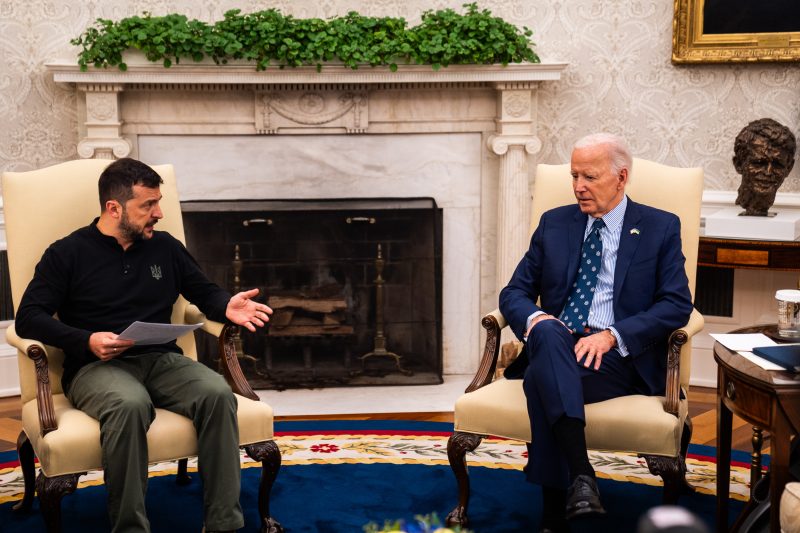The recent urgent appeal by Ukrainian President Volodymyr Zelensky to US President Joe Biden has underscored the growing concerns surrounding the bipartisan split within the United States on key foreign policy issues.
Zelensky’s call for the US to take a stronger stance against Russian aggression in Ukraine comes at a critical time when tensions in the region are high. The Ukrainian president’s plea for increased support from the US has highlighted the challenges that arise when dealing with complex geopolitical issues in a politically divided environment.
The partisan split in the US on foreign policy matters has been a growing trend in recent years, with disagreements on issues ranging from trade agreements to military interventions. The divide often reflects broader ideological differences between conservatives and liberals, with each side advocating for distinct approaches to international relations.
In the case of Ukraine, the partisan split has manifested in differing opinions on how the US should respond to Russian aggression. While some argue for a more confrontational stance to deter further incursions, others advocate for a more diplomatic approach to de-escalate tensions and avoid a direct conflict with Russia.
The divergent perspectives on foreign policy matters not only impede the US government’s ability to respond effectively to international crises but also have repercussions on its credibility and influence on the global stage. A divided approach weakens the US position in negotiations and can embolden adversaries who may exploit the lack of unity among American policymakers.
Furthermore, the partisan split can also have a destabilizing effect on US alliances and partnerships with other countries. Inconsistencies in foreign policy positions can sow confusion among allies and erode trust in the US as a reliable partner, potentially weakening international cooperation on critical issues.
Addressing the partisan split on foreign policy requires a concerted effort to bridge ideological differences and find common ground on key strategic objectives. Bipartisan cooperation and consensus-building are essential to formulating a cohesive and effective foreign policy that advances the interests of the US and promotes stability and security in the international arena.
As the US navigates the complex challenges of geopolitics in the 21st century, overcoming the partisan divide on foreign policy will be crucial to ensuring a unified and principled approach to addressing global threats and safeguarding American interests abroad. Only through a united front can the US effectively confront the complex and dynamic global landscape and uphold its role as a leading player in international affairs.
